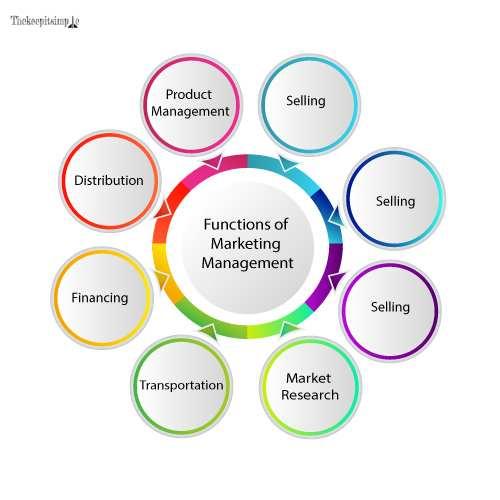Welcome to our latest blog post,where we delve into the intriguing world of marketing management through the lens of GJU’s M.Com examination insights. In the age of rapid digital transformation and evolving consumer behaviors, understanding the core principles of marketing has never been more crucial. this video offers a fascinating exploration of the essential topics discussed in the GJU exam, revealing how theoretical knowledge meets real-world application. Whether you’re a marketing professional, a student aspiring to enter the field, or simply curious about the dynamics of marketing management, this video provides valuable takeaways that can help unlock your understanding and strategies in this vibrant discipline. Join us as we recap the key insights and broader implications that stem from GJU’s educational offerings, and discover how they can impact both your career and the industry’s future.
Table of Contents
- Mastering Marketing Definitions: Essential Concepts for Success
- Strategic Thinking in Marketing Management: Approaches and Techniques
- Real-World Applications of Marketing Strategies: Bridging Theory and Practice
- Preparing for Challenges in Marketing Management: Tips for Future Professionals
- Q&A
- In Retrospect
Mastering Marketing Definitions: Essential Concepts for Success

Understanding foundational marketing concepts is pivotal for anyone looking to excel in the field. By focusing on key definitions, such as target audience, brand equity, and value proposition, professionals can more effectively formulate strategies that resonate with consumers.Recognizing the nuances of these terms can significantly influence campaign effectiveness and overall business performance. For exmaple:
- Target Audience: The specific group of people a marketing campaign is aimed at.
- Brand equity: The value a brand adds to a product, often derived from consumer perception.
- Value Proposition: A statement that clearly outlines why a consumer should choose one brand over another.
Moreover, mastering these definitions not only bolsters theoretical knowledge but also enhances practical application in real-world scenarios. Marketing management is enriched through understanding the interplay between various concepts, such as customer relationship management and integrated marketing communications. Each element plays a crucial role in crafting a cohesive brand message. The following table highlights the synergy between these concepts:
| Concept | Importance |
|---|---|
| Customer Relationship Management | Strengthens customer loyalty and retention |
| Integrated Marketing communications | ensures a unified brand message across channels |
Strategic Thinking in Marketing Management: Approaches and Techniques

Strategic thinking in marketing management embraces a holistic approach that integrates various frameworks and models to ascertain a brand’s position in the market. Employing techniques such as SWOT analysis (Strengths, Weaknesses, Opportunities, Threats) allows marketers to identify internal and external factors influencing their strategy. Moreover, the STP model (Segmentation, Targeting, Positioning) serves to delineate the market landscape effectively, allowing for tailored messaging that resonates with the intended audience. By utilizing these analytical tools, marketers can craft data-driven strategies that not only align with organizational goals but also anticipate market shifts.
Along with these classic methods, contemporary approaches like design thinking and agile marketing are gaining traction in an ever-evolving digital landscape. Design thinking emphasizes empathy and user journeys, enabling brands to create solutions that genuinely meet customer needs. Conversely,agile marketing focuses on iterative processes and versatility,helping teams adapt quickly to changing market conditions. These innovative techniques foster a culture of continuous betterment and responsiveness, ultimately driving superior results in marketing performance.
Real-World Applications of Marketing Strategies: Bridging Theory and Practice

In the ever-evolving landscape of marketing management, bridging theoretical concepts with practical applications has never been more crucial. Students at GJU are equipped with tools that allow them to analyze real-world scenarios and derive actionable insights. By engaging in case studies and collaborative projects, they learn how to tailor targeted marketing strategies to specific consumer segments, ensuring that their campaigns resonate deeply with audiences. This hands-on experience paves the way for them to transcend traditional learning, enabling the translation of classroom lessons into potent marketing solutions in various industries.
This alignment of theory and practice is further showcased through innovative projects that push students to navigate modern marketing challenges. For instance, many students explore the impact of digital marketing tactics, like social media engagement and content marketing, in real business contexts.Such exploration presents opportunities to engage with brands, measuring the effectiveness of campaigns through metrics and feedback loops. The table below highlights key strategies and their practical applications to illustrate this relationship:
| Marketing Strategy | Real-World Application |
|---|---|
| Social Media Marketing | Engaging campaigns on platforms like Instagram and facebook to reach younger demographics. |
| Email Marketing | Personalized newsletters to enhance customer retention and engagement. |
| Content Marketing | Creating informative blogs to position brands as thought leaders in their industries. |
Preparing for Challenges in Marketing Management: Tips for Future Professionals
As future marketing professionals prepare to navigate the complex landscape of marketing management, it is essential to cultivate a proactive mindset equipped with robust strategies. Understanding market trends is fundamental; professionals should immerse themselves in continuous research to identify consumer behavior changes and emerging competitors. Engaging with analytical tools not only sharpens data interpretation skills but also enhances decision-making capabilities. Additionally, networking with industry experts through seminars and workshops can provide invaluable insights and unique perspectives, enriching one’s approach to marketing challenges.
Moreover, embracing technology is crucial for anyone entering this field. Leveraging digital platforms and marketing automation tools can streamline processes and enhance outreach efforts. Key areas of focus should include:
- Data Analytics: Analyzing customer data to craft personalized marketing campaigns.
- Social Media Proficiency: understanding the dynamics of various platforms to maximize engagement.
- Content Strategy: Developing compelling narratives that resonate with target audiences.
| Skill Area | Description |
|---|---|
| Digital Marketing | Utilizing online platforms to reach a broader audience. |
| Brand Management | Maintaining and enhancing brand reputation and identity. |
| Market Research | Gathering insights to inform product progress and marketing strategies. |
Q&A
Q&A: Unlocking Marketing Management – Insights from GJU’s M.Com Exam
Q: What is the main focus of the video titled “”?
A: The video delves into the fundamentals of marketing management as covered in the M.Com exam at GJU. It highlights key concepts, strategies, and challenges faced in real-world marketing scenarios, offering valuable insights for students and professionals alike.
Q: What are some key concepts discussed in the video regarding marketing management?
A: The video outlines several core concepts in marketing management, including market segmentation, consumer behavior, marketing mix, and brand management. These concepts are essential for understanding how businesses effectively reach and engage their target audiences.
Q: Why is understanding consumer behavior significant in marketing management?
A: Understanding consumer behavior is vital as it allows marketers to tailor their strategies to meet the needs and preferences of their target audience. By analyzing factors such as demographics, psychographics, and buying patterns, businesses can create more effective marketing campaigns and enhance customer satisfaction.
Q: How does the video suggest approaching market segmentation?
A: The video suggests a systematic approach to market segmentation by identifying distinct segments within the broader market. It emphasizes the importance of utilizing both demographic and psychographic criteria to effectively target specific groups, allowing for more personalized marketing efforts.
Q: Can you explain the significance of the marketing mix as discussed in the video?
A: The marketing mix, often referred to as the 4Ps (Product, Price, Place, Promotion), is crucial in crafting a cohesive marketing strategy. The video explores how businesses can balance these elements to create a compelling offer that resonates with customers, ultimately leading to increased sales and brand loyalty.
Q: What challenges in marketing management are highlighted in the video?
A: The video addresses several challenges, such as navigating digital transformation, keeping up with market trends, and ensuring brand consistency. These challenges require marketers to be adaptable and innovative in their approaches, fostering a culture of continuous learning and improvement.
Q: How does the video relate these insights to real-world applications?
A: The video connects theoretical concepts to practical applications by presenting case studies and examples from various industries. It illustrates how successful companies implement these marketing strategies, showcasing the relevance and importance of marketing management in today’s fast-paced business environment.
Q: what takeaway messages does the video impart to students and aspiring marketers?
A: The video encourages students and professionals to embrace a strategic mindset when approaching marketing management. It underscores the need for ongoing education, adaptability, and creativity in overcoming challenges and seizing opportunities in the marketing landscape.
Q: How can viewers further explore the topics discussed in the video?
A: Viewers are encouraged to follow additional resources, including textbooks, online courses, and industry reports, to deepen their understanding of marketing management. Engaging in discussions and networking within professional communities can also provide valuable insights and perspectives.
By extracting insights from GJU’s M.Com exam discussions, this Q&A aims to provide readers with a comprehensive overview of the pivotal themes explored in the video, enhancing their understanding of marketing management.
In Retrospect
our exploration of GJU’s M.Com Exam in marketing management has unveiled a wealth of insights that can be invaluable for both students and professionals in the field. From understanding the core principles that drive successful marketing strategies to recognizing the importance of data-driven decision-making,the lessons shared offer a roadmap for unlocking the potential of effective marketing management.
As we navigate an ever-evolving landscape, the ability to adapt and innovate is more crucial than ever. Whether you are preparing for your own examinations, sharpening your skills, or simply curious about the latest trends in marketing, we hope this discussion has equipped you with fresh perspectives and practical knowledge to enhance your understanding and practice.
Stay tuned for more updates,and don’t forget to dive into the video for an in-depth analysis. Remember, the journey of learning is continuous, and each insight we gain brings us one step closer to mastering the art of marketing management. Until next time, keep exploring and expanding your horizons!



